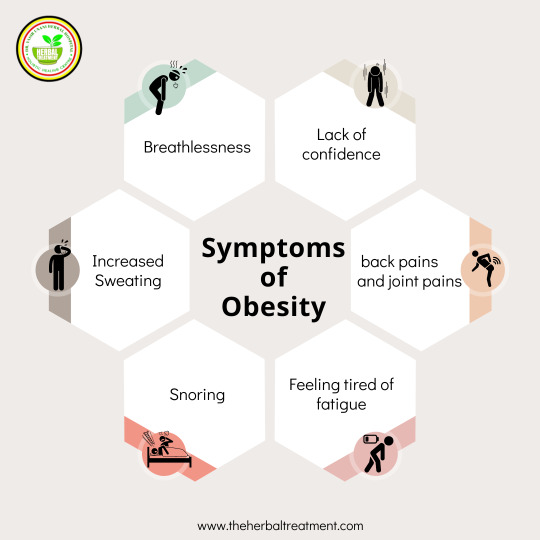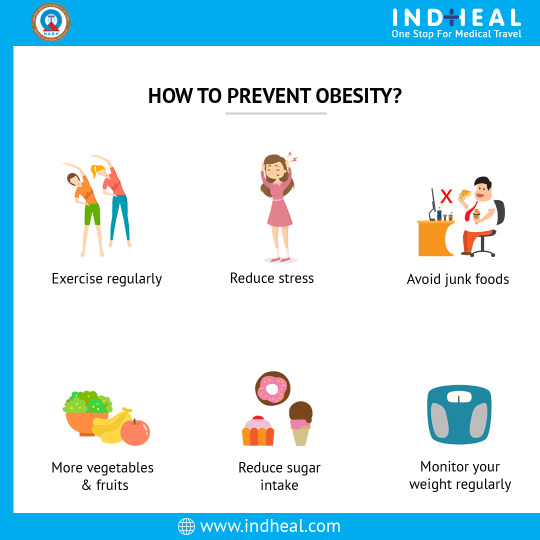#obesityprevention
Text
Fitness and Health for Obese Teens: A Comprehensive Guide

As an obese teen, living a healthy and fit lifestyle can feel like an impossible task. It's easy to feel overwhelmed, lost, and hopeless when it comes to weight loss and fitness. But the truth is that living a healthy and fit lifestyle is not as hard as it seems. In this comprehensive guide, we will explore the best practices for fitness and health in the eyes of an obese teen, with actionable tips and strategies that will help you achieve your goals.
Understanding Obesity
Obesity is a medical condition characterized by excess body fat that can have a negative impact on your health. It is important to understand that obesity is not just a cosmetic concern, but a serious health issue that can lead to various health problems, such as high blood pressure, diabetes, heart disease, and even cancer. In order to achieve optimal health, it is important to maintain a healthy weight, which can be achieved through proper diet and exercise.
Importance of a Balanced Diet
Diet plays a crucial role in achieving a healthy weight. A balanced diet should include a variety of nutrient-rich foods, such as fruits, vegetables, whole grains, lean proteins, and healthy fats. Avoid processed foods, sugary drinks, and excessive amounts of sodium and saturated fats, as these can lead to weight gain and other health problems. Focus on consuming whole, natural foods that will provide your body with the nutrients it needs to function at its best.
Incorporating Exercise into Your Routine
Exercise is an essential component of any fitness and health plan. It helps to burn calories, build muscle, and improve overall health. As an obese teen, it is important to start slow and gradually increase your activity level. Start with low-impact exercises such as walking, swimming, or yoga, and gradually increase the intensity and duration of your workouts. Aim for at least 30 minutes of physical activity each day.
Importance of Sleep
Sleep is often overlooked when it comes to achieving a healthy lifestyle, but it is just as important as diet and exercise. Lack of sleep can lead to weight gain, as it disrupts the hormones that regulate appetite and metabolism. Aim for 7-9 hours of sleep each night to ensure that your body is well-rested and able to function at its best.
Finding Support
Living a healthy lifestyle can be challenging, but having a support system can make all the difference. Seek support from family and friends, or consider joining a support group or hiring a personal trainer. Having someone to hold you accountable and provide encouragement can help you stay on track and achieve your goals.
FAQs:
Q: Can I lose weight without exercise?
A: While exercise is an important component of weight loss, it is possible to lose weight through diet alone. However, incorporating exercise into your routine can help you achieve your weight loss goals more quickly and improve overall health.
Q: What are some low-impact exercises that I can try?
A: Some low-impact exercises include walking, swimming, yoga, cycling, and using an elliptical machine.
Q: How can I make healthy eating more affordable?
A: Look for sales and coupons on healthy foods, buy in bulk, and cook at home instead of eating out. Focus on buying whole foods rather than processed foods, as they tend to be more affordable.
Q: What are some healthy snack options?
A: Some healthy snack options include fresh fruit, vegetables with hummus, nuts and seeds, yogurt, and hard-boiled eggs.
Q: How long will it take to see results?
A: The amount of time it takes to see results will vary based on individual factors, such as starting weight, diet, and exercise routine. It's important to focus on making lifestyle changes that are sustainable for the long term, rather than just focusing on short-term results. Consistency is key, and with time and dedication, you will start to see progress. Remember that small changes over time can lead to big results. Be patient and keep working towards your goals.
Coping with Setbacks
Achieving a healthy weight and maintaining a fit lifestyle is a journey that may not always be easy. There may be setbacks and obstacles along the way, such as stress, emotional eating, or lack of motivation. It's important to recognize that setbacks are a normal part of the process and not to let them discourage you. Instead, focus on learning from them and finding ways to overcome them. Seek support from loved ones or a professional if needed.
Mindset and Mental Health
In addition to physical health, it's important to prioritize mental health as well. The way we think about ourselves and our abilities can greatly impact our success in achieving a healthy weight and lifestyle. Cultivate a positive mindset and practice self-compassion. Focus on progress rather than perfection, and celebrate small victories along the way. Seek help if you are struggling with mental health issues, such as anxiety or depression.
Tracking Progress
Tracking your progress can be a helpful tool in achieving your goals. Keep a journal of your food intake, exercise routine, and weight loss progress. Take measurements of your body, such as waist circumference or body fat percentage, to track changes in body composition. Celebrate progress and adjust your plan as needed to keep moving towards your goals.
Importance of Water
Drinking enough water is essential for overall health and weight loss. Aim for at least 8-10 glasses of water per day, and more if you are active or live in a hot climate. Drinking water can help you feel fuller, prevent dehydration, and aid in digestion. Avoid sugary drinks and excessive amounts of caffeine, as they can dehydrate the body and lead to weight gain.
Finding Enjoyment in Exercise
Exercise doesn't have to be a chore - find activities that you enjoy and make them a part of your routine. Whether it's dancing, hiking, or playing sports, there are countless ways to stay active and have fun. Experiment with different types of exercise until you find what works best for you. Consistency is key, and finding enjoyment in exercise will make it easier to stick to a routine and achieve your goals.
In conclusion, achieving a healthy weight and lifestyle as an obese teen may seem daunting, but with the right mindset and strategies, it is possible. Prioritizing a balanced diet, regular exercise, quality sleep, and mental health are all essential components of a healthy lifestyle. Remember to be patient, consistent, and seek support when needed. With time and dedication, you can achieve your goals and live a happier, healthier life.
#obesity#teens#health#fitness#wellness#exercise#teenhealth#teenfitness#obesityprevention#healthylifestyle#weightloss#motivation#nutrition#diet#mealplan#obesityawareness#fitnesstips#workoutplan#teenwellness#healthyeating#selfcare#obesityhelp#weightlossjourney#mindfulness#fitnessmotivation#teenweightloss#healthyhabits#fitfam#fitspo
5 notes
·
View notes
Text

creamy vanilla ice cream. Ice cream is often made with milk or cream, which are rich sources of calcium. Calcium is essential for maintaining strong bones and teeth, Read the full recipe
https://foodrecipesoffical.com/wp-admin/post.php?post=4148&action=edit
foodrecipesoffical.blogspot.com
#IceCream#HealthyTreats#Nutrition#Desserts#HealthyIndulgence#CalciumSource#MoodBoost#EnergyFood#SocialBonding#ModerationIsKey#SugarAwareness#FatContent#CalorieConscious#VitaminsAndMinerals#WeightManagement#DiabetesFriendly#ObesityPrevention#HomemadeDelights#LowSugarOptions#LowFatAlternatives
0 notes
Text
The Role of Physical Activity in Obesity
Explore the pivotal role of physical activity in combating obesity. Regular exercise not only aids in weight management but also contributes to overall health. Discover how incorporating physical activity into your routine can enhance metabolism, burn calories, and play a vital role in the prevention and control of obesity.
1 note
·
View note
Text
Obesity Continues to Rise in the United States, According to the CDC
#lifestyle#motivation#fitness#health#healthylifestyle#wellness#healthy#fit#nutrition#fitnessmotivation#weightloss#exercise#Obesity#CDC#Obese#obesitycauses#obesityprevention#healthyfood
0 notes
Text
The Science Behind an Effective Obesity Diet Chart
Obesity is a complex and multifactorial health issue that affects millions of people worldwide. While there are various approaches to managing obesity, one of the key elements is a well-structured diet plan. Here, we will delve into the science behind an effective obesity diet chart, exploring the principles and strategies that make it successful.

Understanding Energy Balance:
At the heart of any obesity diet chart lies the concept of energy balance. This refers to the relationship between the calories consumed through food and beverages and the calories expended through physical activity and metabolism. To lose weight and combat obesity, it's crucial to create a calorie deficit, where you burn more calories than you consume.
Macronutrient Composition:
The composition of macronutrients (carbohydrates, proteins, and fats) in your diet plays a vital role in weight management. A well-balanced diet chart for obesity takes into account the following factors:
Carbohydrates: Complex carbohydrates like whole grains, fruits, and vegetables provide sustained energy and help regulate blood sugar levels.
Proteins: Protein-rich foods promote satiety and help preserve lean muscle mass, which is important for maintaining metabolic rate during weight loss.
Fats: Healthy fats, such as those found in avocados, nuts, and olive oil, are essential for overall health and can help control appetite.
Portion Control:
Controlling portion sizes is another critical aspect of an effective obesity diet chart. It's easy to overconsume calories when portion sizes are too large. Learning to recognize appropriate portion sizes and practicing mindful eating can contribute to weight loss success.
Meal Timing and Frequency:
The timing and frequency of meals can impact metabolism and appetite. Some people find success with smaller, more frequent meals, while others prefer intermittent fasting or time-restricted eating. The key is finding a meal timing strategy that works for you and aligns with your lifestyle.
Nutrient Density:
Focusing on nutrient-dense foods is essential for overall health and weight management. These foods are rich in vitamins, minerals, and other essential nutrients while being relatively low in calories. Incorporating nutrient-dense options into your obesity diet chart ensures that you're getting the most nutrition from every calorie.
Behavioral Strategies:
An effective obesity diet chart goes beyond just food choices. It also addresses behaviors and habits that can influence eating patterns. Strategies like keeping a food diary, setting realistic goals, and seeking support from healthcare professionals or support groups can be instrumental in long-term success.
Conclusion:
The science behind an effective obesity diet chart is rooted in principles of energy balance, macronutrient composition, portion control, meal timing, and nutrient density. It's important to remember that there is no one-size-fits-all approach, and what works best may vary from person to person. Consulting with a healthcare provider or registered dietitian can help you create a personalized obesity diet chart tailored to your specific needs and goals. By understanding the science behind it and implementing evidence-based strategies, you can take meaningful steps toward managing obesity and improving your overall health.
#HealthyEating#WeightLossJourney#ObesityPrevention#NutritionMatters#BalancedDiet#LoseWeight#ObesityAwareness#HealthyLifestyle#MindfulEating#WellnessGoals#FitnessForLife#PortionControl#EatClean#BodyPositive#ObesitySupport#HealthyHabits#FitAndHealthy#WeightManagement#DietTips#StayActive#nutrition#wellnessjourney
0 notes
Text
Underlying Contributors to Weight Control: Unraveling the Mystery
Uncover the underlying contributors to weight control and learn how to manage them effectively. Explore the mystery behind weight control. Read More

You understand how irritating it may be if you’ve ever had trouble controlling your weight. While the conventional advice of “eat less, move more” seems straightforward, it often falls short. The fact is that there are multiple underlying contributors to weight control, and knowledge of these factors is crucial for sustained success.
#weightcontrol#obesityprevention#healthyhabits#fitnessmotivation#bodyweightregulation#medicalconditions#publichealthawareness#preventivehealth#behaviorchange#wellnessjourney
0 notes
Text

Can diabetic eat POHA?
can diabetics have poha?
can diabetic person eat poha?
can diabetic eat red poha?
is poha ok for diabetics?
is poha bad for diabetics?
can a diabetic patient eat poha?
is poha okay for diabetics?
These are some questions often asked by diabetics.
Read more at: https://obesity.coach/poha-good-for-diabetes/
#obesityprevention#obesity_treatment#obesitysurgeon#obesitymanagement#obesityproblems#obesityclinic#obesitynot4meoficial#obesityband#diabesitysolution#diabesity27#diabesityfacts#diabesityawareness#obeseindia#obeseindian#overweight#overweightproblems#overweightwomen#diabeteswarrior#diabetesblog#diabetestype#diabetescure#diabeteseducator#diabetesreversal#gestationaldiabetes#diabetesinsipidus#diabetesmellitustipo1#diabetesempowered#bloodsugarstabilization#bloodsugarsupport#bloodsugargoals
0 notes
Photo

What are plant remedies to prevent breast cancer ? Do you wonder how you Can help yourself with natural remedies ? I am a doctor of naturopathy and will guide with all natural health solutions. 🌈Follow me for more @sharingnaturaly #cancerprevention#hormonebalance #hormonehealth #hormonesupport #hormonebalancing #hormone #cancercausingfoods #cancerherbalremedy #womenover29 #Womenover25#healthyhormones #obesityprevention #acnepositivity # #naturopathica #naturalhealingremedies #plantremedies #orangecountyca#newportbeachcalifornia (at Dr. Shari) https://www.instagram.com/p/CkenSn2vMpS/?igshid=NGJjMDIxMWI=
#cancerprevention#hormonebalance#hormonehealth#hormonesupport#hormonebalancing#hormone#cancercausingfoods#cancerherbalremedy#womenover29#womenover25#healthyhormones#obesityprevention#acnepositivity#naturopathica#naturalhealingremedies#plantremedies#orangecountyca#newportbeachcalifornia
0 notes
Photo

Symptoms of Obesity
Obesity is a condition in which excess body fat accumulates to the extent that it affects health.
The following are symptoms of obesity. If you are experiencing any of these symptoms, it may be a sign that you are obese and need to make some lifestyle changes.
Visit us: https://www.theherbaltreatment.com/product/obesity/
0 notes
Text
Move It to Lose It: The Dance Between Physical Activity and Obesity Prevention"
Step Forward: Exploring the Crucial Role of Physical Activity in Preventing Obesity”
In a world marked by sedentary lifestyles and technological conveniences, the battle against obesity finds a formidable ally in the simple act of moving—physical activity. This article delves into the profound impact of exercise on preventing obesity, unraveling the intricate relationship between an active…
View On WordPress
0 notes
Link
Discover the impact of obesity on cancer risk and prevention strategies. Stay informed for a healthier you! #ObesityAndCancer
#ObesityAndCancer#obesity obesitysurvivor obesitysurgery obesityepidemic obesitykills obesitysucks obesityweek2017 obesityprevention obesitycontrolcenter obes
0 notes
Text
✨ Obesity Prevention: Building Healthy Habits ✨
Prevention is better than cure! Let's focus on building healthy habits to prevent obesity and promote overall well-being. Dive into a range of valuable resources that will guide you on this transformative journey. Click the link below to access these resources and start building a healthier future today. Together, we can make a difference! 💚💪🌈
🔗 Link: https://gainmoreenergy.create-a-better-life.com/obesity-awareness/
#ObesityPrevention #HealthJourney #Empowerment #TransformYourLife
0 notes
Text
Obesity Treatment in Vadodara: Early Intervention and Education
Obesity is a growing concern in Vadodara, and the importance of early intervention and education cannot be overstated. In this blog, we'll delve into the topic of preventing obesity through timely measures and informed choices. Discover the effective strategies, tips, and resources available in Vadodara to combat obesity and lead a healthier life.
1 note
·
View note
Photo

Obesity is a major lifestyle disorder affecting about 30% of the population. Some tips to control obesity can help in avoiding weight loss surgeries. For more details, 🌐 http://bit.ly/2WJ2NjY 📧[email protected] 📞+91 7676762562
1 note
·
View note
Text
Did You Know? The Surprising Link Between Sleep and Obesity
Are you struggling with obesity and seeking the best diet plan to help you shed those extra pounds? While dietary choices and physical activity are undoubtedly crucial in the battle against obesity, there's another often-overlooked factor that can significantly impact your weight: sleep. Here, we'll explore the surprising connection between sleep and obesity and provide you with a meal plan for obesity tailored to promote better sleep and support your obesity diet plan.

Understanding the Link Between Sleep and Obesity
Why is Sleep Important for Weight Management?
Research has shown a strong correlation between inadequate sleep and obesity. But why does sleep matter so much when it comes to weight? Several key factors come into play:
Hormonal Balance: Sleep regulates hormones that control appetite and hunger. A lack of sleep can disrupt these hormones, leading to increased cravings for high-calorie foods.
Metabolic Impact: Poor sleep can slow down your metabolism, making it harder for your body to burn calories efficiently.
Energy Levels: Sleep deprivation often leads to fatigue, reducing the likelihood of engaging in physical activity and making healthier food choices.
Late-Night Snacking: People who stay up late may be more prone to snacking, especially on unhealthy, calorie-laden foods.
The Best Diet Plan for Obesity: Integrating Sleep-Friendly Meals
What Should Your Meals Look Like?
To support both your obesity diet plan and improved sleep, it's essential to focus on nutrient-dense foods that promote relaxation and regulate sleep-inducing hormones. Here's a sample meal plan:
Breakfast:
Oatmeal topped with berries and a sprinkle of almonds.
A glass of warm herbal tea, such as chamomile or valerian root.
Lunch:
Grilled chicken or tofu salad with leafy greens, cherry tomatoes, and a vinaigrette dressing.
A small serving of brown rice or quinoa.
Snack:
A handful of walnuts or pistachios.
A cup of decaffeinated green tea.
Dinner:
Baked salmon with a lemon-dill sauce.
Steamed broccoli and sweet potatoes.
Evening Snack (if needed):
A small, low-sugar yogurt.
Sliced kiwi or a banana.
Reasons Behind Sleep-Friendly Food Choices
Complex Carbohydrates: Foods like oats and brown rice provide a steady release of energy and can prevent nighttime awakenings due to hunger.
Lean Proteins: Salmon and chicken are high in tryptophan, an amino acid that promotes the production of serotonin and melatonin, which aid sleep.
Nuts: Almonds, walnuts, and pistachios contain magnesium, which can help relax muscles and improve sleep quality.
Herbal Teas: Chamomile and valerian root teas have natural sedative properties.
Final Thoughts
While dietary choices are central to managing obesity, remember that sleep plays a vital role in your success. Incorporating sleep-friendly meals into your obesity diet plan can optimize your weight loss efforts and improve your overall well-being. Prioritize a good night's sleep, and your journey to a healthier you will be even more attainable.
For more personalized guidance on your obesity diet plan or sleep-related questions, consult with a healthcare professional or a registered dietitian.
To delve into our services on a more personal level or to make inquiries tailored to your needs, please don't hesitate to contact us through the following channels:
Email: [email protected]
Website: genahealthx.com
Phone: +91 93558 70172
Stay connected as you begin your wellness journey with us!
#ObesityDietPlan#HealthyEating#WeightLossJourney#Nutrition#MealPlanning#ObesitySolution#DietTips#HealthyLifestyle#WeightLossGoals#BalancedDiet#FitnessJourney#ObesityAwareness#MealPrep#WellnessWednesday#EatSmart#HealthAndFitness#ObesitySupport#DietitianAdvice#WeightManagement#ObesityPrevention
0 notes